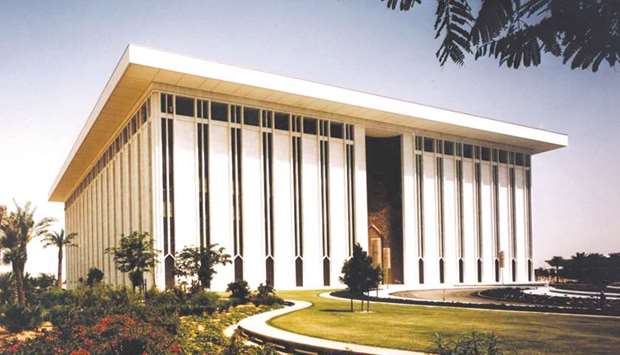Some Saudi billionaires and millionaires are selling investments in neighbouring GCC (Gulf Cooperation Council) countries and turning them into cash or liquid holdings overseas, the people said. They spoke on condition of anonymity because of the sensitivity of the matter. In Saudi Arabia, some are in talks with banks and asset managers to move money outside the country, the people said.
Based on investigations over the past three years, authorities estimate that at least $100bn has been misused “through systematic corruption and embezzlement over several decades,” attorney-general Sheikh Saud al-Mojeb said in a statement on Thursday. A total of 208 individuals have been called in for questioning so far and seven have been released without charge, he said.
Until the surprise arrests of dozens of people last weekend, Saudi Arabia’s elite was the darling of global banks seeking to manage their wealth. They now find themselves on the run in the face of a campaign that has targeted some of the kingdom’s most prominent princes, billionaires and officials.
“There is no doubt that many offshore investors are reassessing their view of some Gulf states as a stable and predictable place to do business,” said Philippe Dauba-Pantanacce, a London-based senior economist and geopolitical strategist at Standard Chartered Bank. “There is a growing perception that governance is becoming increasingly arbitrary or at least less rule-based.”
The central bank asked lenders in the kingdom to freeze the accounts of dozens of individuals who aren’t under arrest, as well as the assets of those being detained, people familiar with the matter said.
In addition, the UAE central bank asked financial institutions to provide information on the accounts of 19 Saudi citizens, people familiar with the matter said on Thursday. The regulator asked to be informed of any accounts, deposits, investments, financial instruments, credit facilities, safe deposit boxes or financial transfers linked to the people, according to a circular seen by Bloomberg.
While efforts to curb corruption are welcome, the “speed and breadth of the crackdown has stirred fear among investors,” said Jason Tuvey, London-based Middle East economist at Capital Economics.
“There’s the added concern here that the political uncertainty leads to a period of capital outflows that forces SAMA to burn through its foreign-exchange reserves at a faster pace,” he said, referring to the Saudi Arabian Monetary Authority, as the central bank is known.
The arrests have prompted investors from within the region to sell. The selloff across the GCC has cost stocks $17.6bn as of Wednesday, dragging the collective market capitalisation for bourses in the region to $900bn, according to data compiled by Bloomberg. Gulf investors sold a net $92.5mn of Dubai stocks on Tuesday, the most since February. The benchmark Tadawul All Share Index closed up 0.3% in Riyadh.
The crackdown started after King Salman formed an anti-corruption commission on Saturday, headed by his son and heir, Crown Prince Mohammed bin Salman. Among those detained was Prince Miteb bin Abdullah. He was also removed from his post as head of the powerful National Guard, a move that reinforced speculation the king was preparing to hand over power to his son. Prince Alwaleed bin Talal, the world’s 61st-richest person, also was arrested.
The purge is affecting some of Saudi Arabia’s richest families. For decades, they benefited from a close relationship with the country’s rulers, which helped them win major contracts and partner with international companies seeking a foothold in the Arab world’s biggest economy.
It also comes at a time when the economy is struggling to cope with the slump in oil prices: Unemployment among Saudis is rising and non-oil gross domestic product is barely expanding. The government has raised tens of billions of dollars from international bond markets and has drawn down on central bank reserves to finance a budget deficit that reached about 15% of gross domestic product in 2015.
The shift in assets is “unsurprising given a true corruption cleanup would go much further than the events of the weekend,” said Emad Mostaque, London-based co-chief investment officer of emerging-markets hedge fund Capricorn Fund Managers Ltd. The central bank “has strong systems in place to track flows and excellent relationships with major banks globally so any assets moved offshore could be frozen and returned if from corruption.”
Some of the country’s wealthy are worried that shifting assets outside Saudi Arabia may draw suspicion and are instead focusing on their GCC holdings, two people with knowledge of the matter said.
Saudi Arabia is also in the midst of implementing a transformation aimed at weaning the economy off oil. The government plans to create the world’s largest sovereign fund and sell hundreds of state assets, including Saudi Arabian Oil Co, as well as stakes in the stock exchange, soccer teams and flour mills.
Concerns of a renewed confrontation between Saudi Arabia and Iran is also prompting investors to dump stocks in the region. Lebanese Prime Minister Saad Hariri resigned on Saturday, announcing his decision from Saudi Arabia.
Kuwait’s SE Price Index has lost 4.4%, while Dubai’s DFM General Index fell 4.8%. All measures in the region are down for the week with the exception of Oman’s MSM30 Index, which rose 0.3%.
“A lot of GCC money is already sitting outside the GCC region, especially in Paris, Geneva, Zurich and Asia,” said Sergey Dergachev, who helps oversee about $14bn in assets as a senior money manager at Union Investment Privatfonds GmbH in Frankfurt. “Those centers should remain beneficiaries if more money moves out.”
“The speed and breadth of the crackdown has stirred fear among investors. There’s the added concern here that the political uncertainty leads to a period of capital outflows that forces SAMA to burn through its foreign-exchange reserves at a faster pace,” says Jason Tuvey, London-based Middle East economist at Capital Economics.



